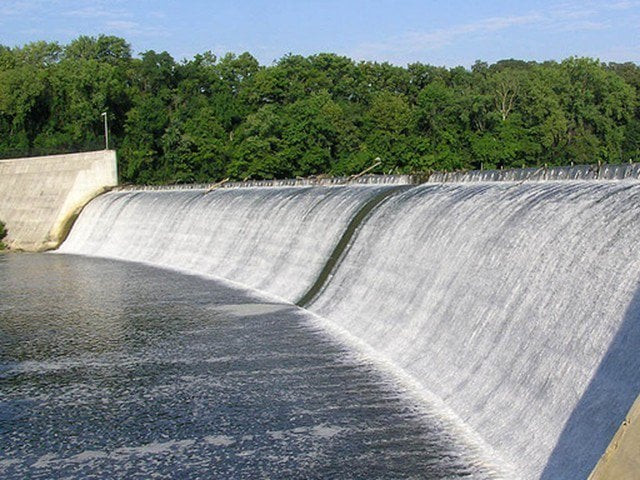Indian delegation to arrive on Aug 28 for water talks
Two-day moot to focus on two Indian hydropower projects

PHOTO: FILE
The nine-member delegation will be led by Indian Commissioner PK Saxena and caretaker commissioner Syed Mehar Ali Shah and his delegation will represent Pakistan.
The two-day moot will focus on Indian hydropower projects at Lower Kalnai and Pakal Dul which will have installed capacity of 48 and 1,000 megawatts respectively. As a result of these projects, India will be able to control 108,000 acre-feet of water from river Chenab.
The earlier venue for the two-day huddle was Lahore, which was later changed to Islamabad by the water and power minister.
Pakistan cries foul over India’s bid to inaugurate Kishenganga dam
In 2012, Pakistan objected over Pakal Dul's design for violating the Sindh Taas Agreement. On the occasion, Pakistani officials demanded that the freeboard height should be reduced from seven-feet to two-feet and that the installation of the seal way gates should be done with an additional 40 metres in order to bring it to 1620 metres and align it with sea level.
Despite Pakistan repeatedly dissenting the storage of water in the dam and the provision of data in regards to its operation, Indian Prime Minister Narendra Modi inaugurated the projects in May.
Following this development, a statement issued by the Foreign Office said that despite several rounds of bilateral negotiations as well as mediation under the auspices of the World Bank, India continued with the construction of the project.
Both the projects constitute a violation of the Indus Water Treaty 1960. The treaty allotted the waters of three eastern rivers namely Ravi, Beas and Sutlej exclusively to India while that of Western rivers namely Indus, Chenab and Jhelum to Pakistan. However, India has some rights on Western rivers which include unrestricted rights to develop hydroelectric power within the specified parameters of the design.
Permanent Indus Commission, formed under the treaty signed between India and Pakistan in 1960 comprises of Indus commissioners for both the countries. The treaty provides for both the commissioners to meet at least once every year, alternately in India and Pakistan.



















COMMENTS
Comments are moderated and generally will be posted if they are on-topic and not abusive.
For more information, please see our Comments FAQ